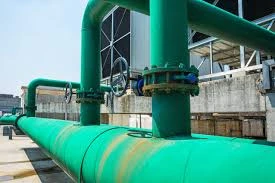
-
 Afrikaans
Afrikaans -
 Albanian
Albanian -
 Amharic
Amharic -
 Arabic
Arabic -
 Armenian
Armenian -
 Azerbaijani
Azerbaijani -
 Basque
Basque -
 Belarusian
Belarusian -
 Bengali
Bengali -
 Bosnian
Bosnian -
 Bulgarian
Bulgarian -
 Catalan
Catalan -
 Cebuano
Cebuano -
 China
China -
 China (Taiwan)
China (Taiwan) -
 Corsican
Corsican -
 Croatian
Croatian -
 Czech
Czech -
 Danish
Danish -
 Dutch
Dutch -
 English
English -
 Esperanto
Esperanto -
 Estonian
Estonian -
 Finnish
Finnish -
 French
French -
 Frisian
Frisian -
 Galician
Galician -
 Georgian
Georgian -
 German
German -
 Greek
Greek -
 Gujarati
Gujarati -
 Haitian Creole
Haitian Creole -
 hausa
hausa -
 hawaiian
hawaiian -
 Hebrew
Hebrew -
 Hindi
Hindi -
 Miao
Miao -
 Hungarian
Hungarian -
 Icelandic
Icelandic -
 igbo
igbo -
 Indonesian
Indonesian -
 irish
irish -
 Italian
Italian -
 Japanese
Japanese -
 Javanese
Javanese -
 Kannada
Kannada -
 kazakh
kazakh -
 Khmer
Khmer -
 Rwandese
Rwandese -
 Korean
Korean -
 Kurdish
Kurdish -
 Kyrgyz
Kyrgyz -
 Lao
Lao -
 Latin
Latin -
 Latvian
Latvian -
 Lithuanian
Lithuanian -
 Luxembourgish
Luxembourgish -
 Macedonian
Macedonian -
 Malgashi
Malgashi -
 Malay
Malay -
 Malayalam
Malayalam -
 Maltese
Maltese -
 Maori
Maori -
 Marathi
Marathi -
 Mongolian
Mongolian -
 Myanmar
Myanmar -
 Nepali
Nepali -
 Norwegian
Norwegian -
 Norwegian
Norwegian -
 Occitan
Occitan -
 Pashto
Pashto -
 Persian
Persian -
 Polish
Polish -
 Portuguese
Portuguese -
 Punjabi
Punjabi -
 Romanian
Romanian -
 Russian
Russian -
 Samoan
Samoan -
 Scottish Gaelic
Scottish Gaelic -
 Serbian
Serbian -
 Sesotho
Sesotho -
 Shona
Shona -
 Sindhi
Sindhi -
 Sinhala
Sinhala -
 Slovak
Slovak -
 Slovenian
Slovenian -
 Somali
Somali -
 Spanish
Spanish -
 Sundanese
Sundanese -
 Swahili
Swahili -
 Swedish
Swedish -
 Tagalog
Tagalog -
 Tajik
Tajik -
 Tamil
Tamil -
 Tatar
Tatar -
 Telugu
Telugu -
 Thai
Thai -
 Turkish
Turkish -
 Turkmen
Turkmen -
 Ukrainian
Ukrainian -
 Urdu
Urdu -
 Uighur
Uighur -
 Uzbek
Uzbek -
 Vietnamese
Vietnamese -
 Welsh
Welsh -
 Bantu
Bantu -
 Yiddish
Yiddish -
 Yoruba
Yoruba -
 Zulu
Zulu
Benefits and Applications of Fiberglass Storage Tanks for Various Industries and Environments
Fiberglass Storage Tanks A Sustainable and Durable Solution
In a world increasingly focused on sustainability and efficient resource management, fiberglass storage tanks have emerged as a key player in various industries. These tanks have gained popularity due to their unique properties, which make them an excellent choice for storing a wide range of liquids, including water, chemicals, and fuels.
Fiberglass, or fiber-reinforced plastic (FRP), is composed of a polymer matrix reinforced with glass fibers. This composition offers a blend of strength, flexibility, and resistance to corrosion that is hard to match. Unlike traditional materials such as steel or concrete, fiberglass storage tanks are inherently resistant to rust, corrosion, and other chemical reactions. This makes them an ideal solution for industries that deal with aggressive chemicals, saline environments, or fluctuating temperatures.
One of the most significant advantages of fiberglass storage tanks is their lightweight nature. This characteristic not only makes them easier to transport and install but also reduces the costs associated with foundation and support structures. Unlike concrete or steel tanks, which require substantial groundwork due to their heavy weight, fiberglass tanks can be installed quickly and with minimal site preparation. This is crucial for industries that require efficient setup and minimal downtime.
In addition to their lightweight properties, fiberglass tanks are also remarkably durable. They can withstand extreme weather conditions, such as high winds and heavy snow loads, without compromising their structural integrity. This durability translates to a longer lifespan compared to traditional storage solutions, providing businesses with a cost-effective option in the long run. Many manufacturers offer warranties of 30 years or more for fiberglass tanks, underscoring their reliability and longevity.
fiberglass storage tank

Moreover, fiberglass tanks can be customized to meet specific requirements. Manufacturers can design tanks in various shapes, sizes, and colors, ensuring that they fit seamlessly into any operational environment. This customization enhances aesthetics while also providing practical benefits, such as optimizing space and improving efficiency in storage processes.
Environmental considerations have also propelled the adoption of fiberglass storage tanks. As industries strive for greener operations, these tanks offer a solution that minimizes environmental impact. The materials used in fiberglass production can be recycled, and the tanks themselves can often be repurposed at the end of their service life, which aligns with sustainable practices. Furthermore, their resistance to chemical leaching mitigates the risks of contamination in surrounding soil and groundwater, making them a safer choice for storing hazardous materials.
Finally, safety is a paramount concern in any industry that handles liquids. Fiberglass storage tanks are designed with safety features that minimize the risk of leaks and spills. Their seamless construction reduces the potential for failure points, and many tanks come equipped with monitoring systems that can track fluid levels and alert operators to potential issues before they escalate.
In conclusion, fiberglass storage tanks represent a versatile, durable, and environmentally friendly solution for industries requiring liquid storage. Their lightweight, corrosion-resistant properties, combined with customizability and long lifespan, make them an excellent choice for various applications. As the demand for sustainable practices continues to rise, fiberglass tanks are likely to play an increasingly important role in the future of storage solutions. By embracing this innovative technology, businesses not only enhance their operational efficiency but also contribute to a more sustainable future.
Latest news
-
Fiberglass 90 Degree Elbow for Custom Tanks & High Pressure Pipes Durable and Corrosion ResistantNewsJun.24,2025
-
Exploring the Benefits of Top Hammer Drifter Rods for Enhanced Drilling PerformanceNewsJun.10,2025
-
High-Precision Fiberglass Winding Machine for GRP/FRP Pipe Production – Reliable & Efficient SolutionsNewsJun.10,2025
-
FRP Pipes & Fittings for Shipbuilding - Corrosion-Resistant & LightweightNewsJun.09,2025
-
Premium FRP Flooring Solutions Durable & Slip-ResistantNewsJun.09,2025
-
Premium Fiberglass Rectangular Tanks Durable & Lightweight SolutionNewsJun.09,2025









